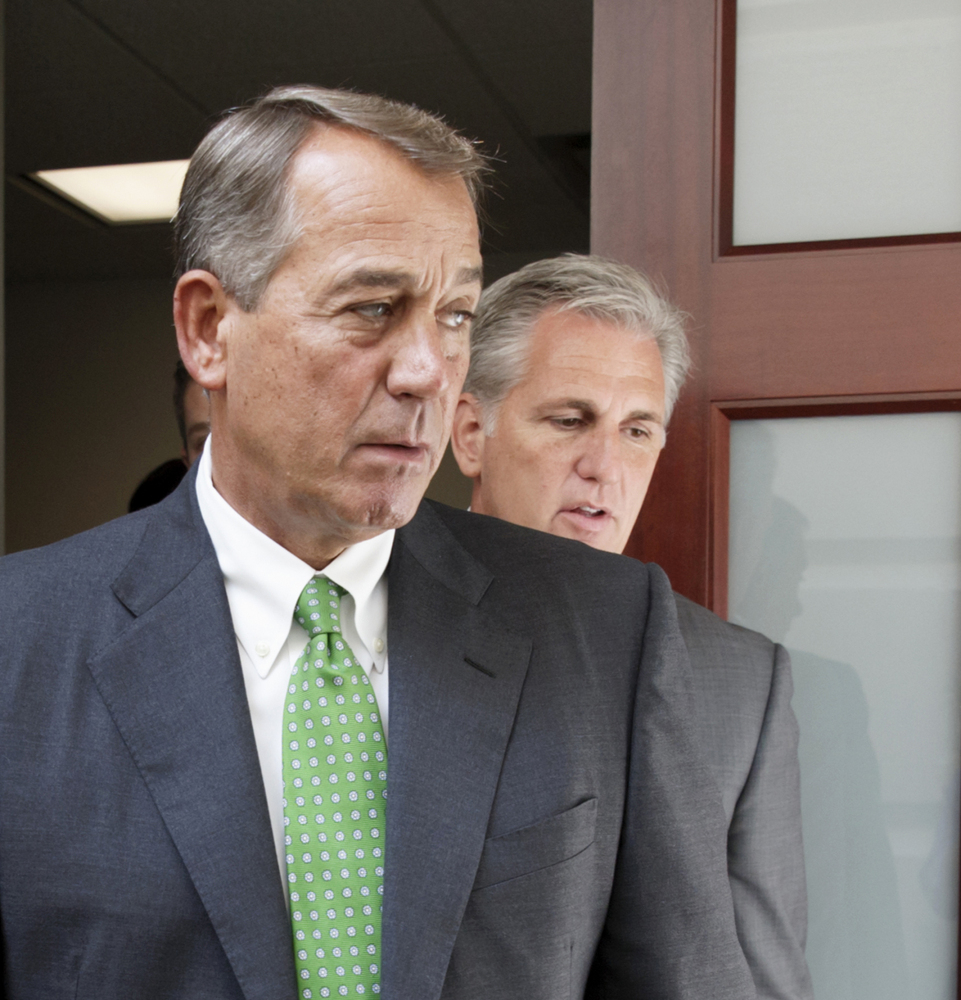WASHINGTON — The deadline for Congress to increase the government’s borrowing limit is coming earlier than expected, moving up to about Nov. 5.
That means the issue likely must be addressed before House Speaker John Boehner, R-Ohio, leaves Congress at the end of October.
Three weeks ago, Treasury Secretary Jacob Lew issued a less precise timeline that was interpreted as mid-November or later, but he told top lawmakers in a letter Thursday that tax receipts have come in below estimates and payments into military retirement trust funds are higher than anticipated.
The Congressional Budget Office, which supplies estimates to lawmakers, said in August that the deadline would be about late November or early December.
Increasing the government’s borrowing limit above $18.1 trillion is needed to prevent a first-ever default on government obligations like interest payments and Social Security. The government has never failed to meet its obligations and a default would likely have severe effects on interest rates and the economy.
Since the limit was reset in March, Treasury has employed accounting maneuvers known as “extraordinary measures” to be able to continue to borrow. Those measures chiefly involve suspending payments into federal retirement funds.
“We now estimate that Treasury is likely to exhaust its extraordinary measures on or about Thursday, Nov. 5,” Lew wrote top lawmakers.
“At that point, we would be left to fund the government with only the cash we have on hand, which we currently forecast to be below $30 billion.”
Congress last increased the debt limit in February 2014.
In 2011, Republicans used the need to increase the debt limit as leverage to force President Barack Obama to agree to spending cuts.
But Obama has since refused to negotiate over the debt limit and last year’s increase passed largely on the votes of House and Senate Democrats.
The debt limit issue is but one element in a difficult matrix of issues facing Congress this fall.
While Republicans controlling the House and Senate managed Wednesday to avert a shutdown by funding the government through Dec. 11, difficult negotiations over increasing the spending caps set in 2011 – as demanded by Obama – have only started.
Last week’s shocking announcement by Boehner that he is stepping down at the end of the month only complicates matters.
So too does an ongoing set of leadership races to replace him.
Send questions/comments to the editors.



Success. Please wait for the page to reload. If the page does not reload within 5 seconds, please refresh the page.
Enter your email and password to access comments.
Hi, to comment on stories you must . This profile is in addition to your subscription and website login.
Already have a commenting profile? .
Invalid username/password.
Please check your email to confirm and complete your registration.
Only subscribers are eligible to post comments. Please subscribe or login first for digital access. Here’s why.
Use the form below to reset your password. When you've submitted your account email, we will send an email with a reset code.